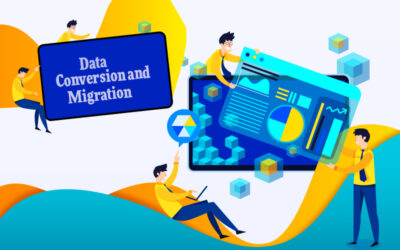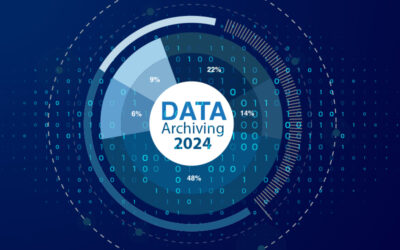Effective digital transformation can drive better business intelligence and helps take the right business decision. New technologies open up new opportunities for businesses and create new challenges, and enhance productivity. Digitization with document conversion service is a composite process that uses technology and resources to alter business process and improve performance.
Today, at the time of COVID 19, where the world is working from home, digital transformation helps businesses to work together virtually, empowers employees and enables optimization of facilities and services based on real-time data. Digital transformation is not just about technology, it is also about developing the next generation skills of the people. As the future is uncertain, it is important for employers to focus on providing the necessary training for the employees so that they are better equipped for any change that is expected in the future.
So, here are some points to consider to prepare the employees for the future and find novel ways to coexist in the digital world, as highlighted in a Harvard Business Review post.
- People come before technology: The right combination of technology and skilled people is important. If technology disruption leads to elimination of outdated jobs then it also creates new jobs, which is known as “creative destruction” – an expression attributed to Joseph Schumpeter, an Austrian-trained economist, economic historian and fervent capitalist. For any technology advancement, its creative aspects of innovation depend on the humans’ adaptability to reskill and upskill the workers. A technology innovation becomes relevant only if skilled people are teamed up with the right tech and business leaders must think of investing in technology only after considering the people who can make this technology useful.
- Concentrate on soft skills: As discussed above, digital transformation is more about people rather than technology. So, focusing on soft technological skills is important. Although the demand is for cybersecurity analysts, software engineers, and data scientists etc, there is even bigger need for people who can be trained for the next wave of IT skills. The best way to make your organization more data-centric and digital is to selectively invest in those who are most adaptable, curious, and flexible in the first place. As we are uncertain about what the future holds for hard skills, it is better to rely on people who are likely to develop new skills. Choosing people who are keen to learn and forward-looking, and show interest in mastering those skills in demand is important.
- Start with the top leaders: Typically, organizations drive change from the grassroots level but it is best to start from the top. In the context of digital transformations, the main implication is that you cannot expect big changes or upgrades to your organization unless you start by selecting and developing your top leaders to begin with. The most important factor that determines the effectiveness of the firm is the CEO or head of the firm. The mindset, values, integrity, and above all, competence of the most senior leaders matter a great deal. So, to bring a change it is important to invest in in top talent.
- Act on data insights: Businesses now focus on Artificial Intelligence (AI) such as machine learning, deep learning or natural language processing that can future proof the business organization. But what is more important is, harnessing valuable data, having the necessary skills to translate that data into meaningful insights, and above all being able to act on those insights. Data without insights is useless. Just having data scientists or investing in AI tools cannot address problems and drive change, it is important to focus on a data-driven culture. Successful companies like Google, Facebook, and Amazon harness data assets and have good algorithms to interpret the data and act accordingly.
- Take it slowly: In this fast-paced world, adapting to constantly changing business culture, speeding up and operating at a fast pace is important. There is always the concern of compromising quality when things are done very fast. So, if you don’t want to risk failures that could come with quick experiments, the best option is to go slow. You need to make sure that your long-term speculations are working out.
Digital integration has become inevitable to companies in all industry sectors that want to stay competitive. Any digital transformation begins with document conversion services to digitize all paper-based assets and convert them into the desired file formats. The digital transformation must be people-focused so that it will enhance the employee experience, empower employees, and enable optimal use of facilities and services based on real-time actionable data. You need to build a team of skilled people who are happy about the changes. They should be able to see the opportunities driven by the change and adapt to it. This will improve organizational efficiency and productivity.




